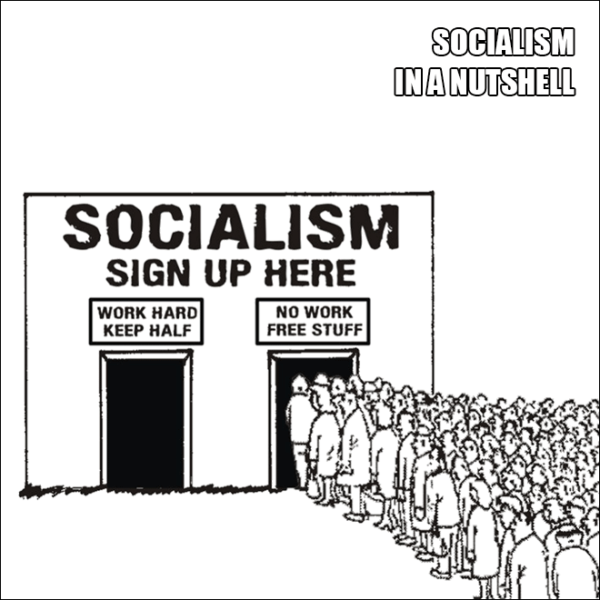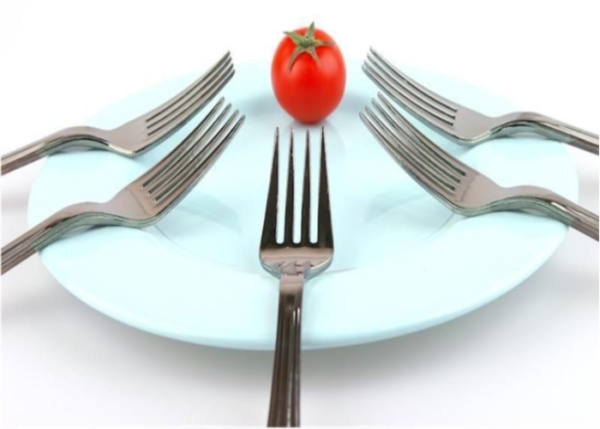After an eight year love affair, my husband is finally getting rid of his Ford pickup truck. It’s got over 84,000 miles on it, which isn’t too bad, but it’s really tall with the clearance lights, making it difficult to get into some parking garages. It’s also not the type of car you want to meet clients in, so there’s that. Of course gone will be the days when we can go to Lowes and pick up ten sacks of mulch or a new water heater, but I know that the old girl is getting up in years, so I see a lot of post-warranty bills in it’s future. But Rune has a lot of sentimental feelings for his truck, and although Erik thought its engine was too quiet, he loved it, too. It’s the same truck Rune and Erik stood next to during Rune’s first lucid dream with his son. In it, Erik said, “This is how I felt before I died,” and he leaned into his father with his energy. When he did, Rune felt utter despair. Then Erik said, “And this is how I feel now.” He leaned into Rune the opposite way and made him feel this incredible sense of euphoria. So there’s that. Farewell, white beast! And thanks for creating big grooves in our paved driveway. Bitch. (Just kidding. I love you.)
Erik: A lot of this is just stirred up from this whole masculine thing. We have a masculine culture. “Ooo, I gotta be the dominant one. I got to be the top in this situation.”
Me: Yeah.
Erik: That era is coming to an end.
Me: Good.
Erik: All this is getting stirred up because that old way of being is wanting to get its last hurrah in.
Me: Yeah. Well now, to me, it seems like—I know a lot of people say that blacks, Hispanics and other races are disproportionately penalized in our justice system, and I believe there is prejudice. First of all, a lot of them can’t afford a lawyer and have to go with a public defender and so on. I do think that these populations do commit more crime. Am I wrong? Because the family structure—
Robert: Freddie is speaking now.
Freddie: Here’s the thing about statistics. In some races, you can see that, but the thing you have to realize is that people of a certain socioeconomic background have fewer opportunities. They have to struggle more.
Me: Yeah!
Freddie: They’re going to do things to survive. I can’t speak for all races; I can’t speak for African Americans because I won’t, but whenever you see those kinds of things, it’s pointing attention not to the fact that that race is dysfunctional but that society is.
Me: Yes, of course.
Freddie: That group isn’t getting the support from society that they need. This could be any race.
Me: And the family structure, it seems like the family dynamics among African Americans have really suffered, and that’s obviously a reflection of society, too.
Freddie: It is, and that goes back to financial ability. If mom and dad both have to work or if job opportunities are not available, they create this downward spiral.
Me: Yeah. Then they get into trouble and sometimes get killed.
Not having a father in the household of any race can be a factor.
Freddie: Then they get blamed for the fact that they got into trouble not realizing that the whole reason they got into trouble in the first place is because they needed help.
Me: Yeah, but you still have to have personal responsibility.
Freddie: Of course you do, but it’s unfair to tell a person that all the responsibility is on their shoulders.
Me: No, of course not. The circumstances aren’t always fair. What can be done?
Freddie: But I’m not advocating that just because someone is angry that they can do whatever the heck they want. That’s just not right. People have to deal with consequences. It’s part of how you grow.
Me: Well, what can we do to rectify the situation, the family structure, the increased criminality—if there is any—in the lower socioeconomic levels? Maybe it’s not race related. Maybe it’s all about income.
Freddie: I’m no expert, but you have to have certain programs to help people, of course, but the thing we always mess up with that I see now but I didn’t see in life is that you have to see everyone as a human being. There are certain things we need aside from material things and things to sustain our bodies like food, shelter, money and all that: We gotta connect with each other. That’s what this session is all about.
Me: It’s all about connection, yeah.
Freddie: We have to love, support and nurture each other. We don’t nurture each other like we did. We’ve become separate from each other. We talk this nice talk to each other about loving and supporting each other, but do we do it? No we don’t! We just give lip service to it. We don’t hug people. If somebody is upset, we get all awkward about it instead of helping them. We gotta help each otha. When you’re loved and raised in an environment of love, I can tell you, whether you’re rich or poor or middle class, most of the time you’ll come out fine. A lot of people aren’t raised that way, and then they raise their kids that way, not connecting to each other. But that’s the solution. I know it sounds corny, but it’s true.
Me: I think it’d be a little less pressure if we could get the economy growing better so there could be more opportunities for all socioeconomic levels. The economy sucks right now!
Freddie: Right.
Me: The middle class is getting slammed. And the poor! The poor are being slammed. They’re really getting hurt.
Freddie: Right. Of course that stuff is necessary. I’m just saying on an individual level, we need connection because I guarantee you, if we have all of that, and we’re supporting each other, we’d have a well-adjusted society where people are not trying to take something from someone else. Then everything will grow in the process: The economy will stabilize because there won’t be anyone trying to destabilize it.
Me: Okay. Now, what do you think about Black Lives Matter, that whole movement?
All three in unison: We don’t have an opinion on that.
Me: Oh, okay.
All three in unison: What we will say is there is always, on every side, a group that’s meant to resist and create tension whether that tension is “good” or “bad.” In order to grow, you have to have a push and a pull, something to pull against and something to push against.
Me: Okay.
All in unison: So all these groups, it doesn’t matter which group it is, that’s what they do. Then everyone comes together collectively to do the thing that’s healthiest for all of us. We, as human beings, that’s what we want—to live. We want to thrive and continue to perpetuate ourselves as a species.
Robert: Freddie’s smart!
Me: Wow, that’s awesome. Well, the thing I don’t like about some in the Black Lives Matter group is when they chant things like, “Pigs in a blanket; fry ‘em like bacon” or “What do we want? Dead cops. When do we want them? Now.” To me, that’s just so divisive and unloving. It just destroys connections.
Freddie: Right, but in our community, when people see that no matter what their race is, there’s going to be some who want that kind of energy. It’s happening in politics, too.
Me: Oh, god.
Freddie: It doesn’t matter what party.
Me: Yeah. All parties.
Freddie: But the thing is that in society, as a collective, the African American collective, the collective of another race or just the collective in general, we see that and think, “No, we don’t want that. We don’t want that for our kids. We know to do the right thing.” So those people are doing us a favor by telling us what we don’t want.
Me: Ah! Okay, well that’s good. Not much attention has been given to the backlash. Innocent police officers have been killed like in Dallas and in other places. What do you make of that?
Freddie: Fighting fire with fire just gives you more fire.
Me: Yeah.
Freddie: I don’t think it’s right. We need to focus on what’s going on here, that we’re in a state, a transition and we gotta realize that life is life. We also have to pay attention to the fact that all lives matter. In other words, collectively, of course, everyone’s life matters, but within that collective, some of those lives aren’t thriving as well as others. We have to focus on that, too.
Me: Sure. Absolutely.
Robert (smiling): He says, “Thank you, ma’am” every once in a while. Every time he says something, he’ll say, “Thank you.”
Me: Aw. Sweet! Well, do you think there’ll ever be a time in our lifetime—
Robert (chuckling): This is a long [session!]
Me: I know! When will our society evolve in a way that there is no more prejudice toward skin color or socioeconomic level or anything else? When will we get there?
Erik: Mom, this is what I’m so excited about. Poverty can’t go away until we unify ourselves as a species.
Robert: By the way, whenever Erik comes in, he gets me worked up!
He shakes his hands and makes frenetic noises.
Me: Poor. You need to take a Xanax before the session.
Robert: He ups my energy, and it almost feels like I’m going to get manic.
He gives a manic squeal, and I chuckle.
Erik: Oh my god, I’m so excited! So we can’t end poverty until we unify ourselves as a species, as humanity. All these things that are going on are unifying us. We’re starting to see that everyone is everyone’s friend and family member. It’s going to take a little time.
Robert: How long?
Erik: Twenty to thirty years, but especially over the next five years, you’re going to see a big difference. When I say 20-30 years, I’m talking about most of the globe. When that happens, we’re going to start working together. We’re going to realize that we’ve all got to help each other, and we’re going to start lifting each other up. We’re not going to say, “You know what? That’s that country’s problem.”
Me: Yeah.
Erik: Because we’ll realize that that country will affect us if it is always down in the dumps and struggling. It will always need help from us, and the reason that exists is because it’s saying, “Look, we’re all in this together.” When we help those other people and lift them up, it’ll help us. A strong foundation is built on strong materials, and we, as individuals—
Me: Are all part of the collective.
Erik: Right. If any part of that is weak, then the whole foundation is going to crumble, and we’re always going to be living in this place, Mom, of struggle and scarcity and people who have are going to want to protect it from people who don’t have. And the people who don’t have are going to want to take from someone else. When we realize that we’re all in this together and have the ability to share among ourselves and perpetuate more, then we’ll let go of all this shit.
Me: And scarcity is an illusion.
Erik: Damn right, it is! Of course in nature there are a certain number of resources, and we, as human beings, understood that and created a structure based on that. So we try to preserve some of those resources. But we’ve gotten to a point now where we can create those resources for ourselves. We’re getting so close to being able to do that.
Me: That’s awesome.
Erik: We’re almost there, and once we get there, all this will go away. There will be no more scarcity because we’ll be able to create what we need.
Me: Yeah.
Tomorrow at 7 PM CT is Erik’s Hour of Enlightenment radio show. Call 619-639-4606 15 minutes prior to talk to Erik. http://goo.gl/aFHTzJ Again, if you’ve tried to get on as a caller three or more times to no avail, please email me (emedhus@gmail.com) your question and the number you’ll be calling from and I’ll try to help. If you’ve gotten on more than once, please consider giving others a chance. Thanks!!
Stay tuned for the last two parts of the All Lives Matter series Thursday and Friday, then next week, I’ll post Patrick’s interview with Debbie Reynolds and Carrie Fisher!
Also, check out the latest post from Alison Ailfinn Allan’s and Erik’s Australian blog by clicking HERE.
Last but not least, be sure to download the Channeling Erik App for your Android phone from Google Play. I hear it’s awesome!! The iOS version (for iPhones) is still under review by Apple. It hit a glitch involving metadata, whatever that is, so we’re trying to get over that hurdle.



